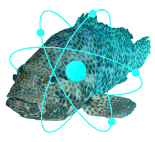Speaker
Description
Degree Programmes Radiological Technology and Radiological Physics, taught at the Department of Dosimetry and Application of Ionizing Radiation at the Faculty of Nuclear Sciences and Physical Engineering of the CTU in Prague, are within the boundaries of both physics and medicine. As such, they must be accredited by the National Accreditation Bureau for Higher Education, but they are also approved by the Ministry of Health. They are therefore recognized as health care professions. All three levels of education in these fields, bachelor, master and doctoral, cover three subject areas: radiodiagnostics, nuclear medicine, and radiotherapy.
The radiological technologist's (the bachelor level) main concern is radiation protection in performing routine programme procedures (including dosimetric measurements) and especially in assisting the medical physicists. In practice. This means performing operation and long-term stability tests of medical instruments using ionizing radiation, preparing local radiological standards, determining local diagnostic reference levels, participation in introducing new diagnostic methods, calculations of doses received by patients, etc.
The master´s degree course in Radiological Physics gives to the graduate´s more complex competences, especially to perform the profession of radiological physicist. The curriculum includes several medical subjects and on-the-job experience and training in medical centres. The students familiarise themselves in detail with the use of ionizing radiation for diagnostic and therapeutic in health care, the physical and technological principles of modern imaging techniques in medicine and advanced radiotherapy using radionuclides, accelerators and other specific equipment, and medical disciplines such as anatomy, physiology, human body biology, biochemistry and pharmacology.
The graduates are ready to apply for positions of medical physicists in departments of radiology, nuclear medicine, and radiotherapy or in the departments of medical physics and/or radiation protection in hospitals. They closely collaborate with the medical staff in administering diagnostic and therapeutic procedures, namely in the physical and technical aspects. The course programme trains students also for positions focusing on nuclear safety and radiation protection.
The Doctoral programme and topics of doctoral theses are closely related to the master programme in Radiological Physics, giving a more in-depth insight into special areas of radiological physics. The coursework part of the programme comprises new methods in radiodiagnostics, radiotherapy and nuclear medicine, microdosimetry, radiobiology and the use of Monte Carlo method in radiological physics.
The implementation of these educational programmes requires close co-operation with medical institutions, both in teaching and in providing practical training. It is not in the faculty's capabilities to own and operate costly medical instrumentation such as medical accelerators, CT scanners, etc. However, the basic equipment of the faculty has recently been expanded by a unique simulator, the only one in the Czech Republic. It is a virtual environment of a radiotherapy treatment room. Through captivating 3D views and life size visualizations, it offers an excellent platform for supplying radiation therapy training to students.
The programmes are designed in accordance with and comply with the standards and recommendations of the European Federation of Organisations for Medical Physics.
